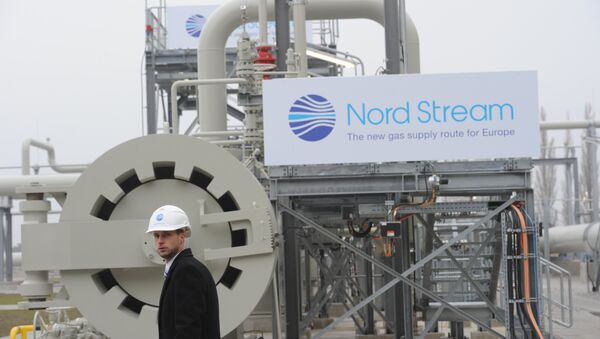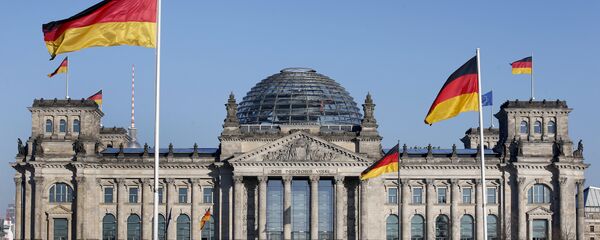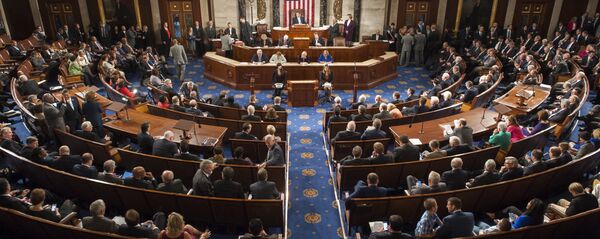The US House of Representatives approved by a 419-3 vote on Tuesday a new version of a bill that would impose sweeping sanctions on Russia, Iran and North Korea, and limit President Donald Trump’s ability to lift the restrictions on Moscow. The measures target Russia's defense, intelligence, mining, shipping and railway industries, and restrict dealings with Russian banks and energy companies.
"We see very serious pressure from the US on European companies. It directly hits European companies' business interests, even often within Europe itself, on European energy security," Oreshkin told reporters.
The US House of Representatives anti-Russia sanctions bill will not force a revision of Russia's macroeconomic forecast or a fundamental shift in the ruble exchange rate, he added.
In April, Gazprom's subsidiary Nord Stream 2 AG signed a deal with French Engie, UK’s Royal Dutch Shell, Austria’s OMV and Germany's Uniper and Wintershall, which agreed to provide part of long-term financing of the gas pipeline project, estimated at 9.5 billion euros ($10.6 billion).
The Nord Stream 2 project presumes the construction of two gas pipelines with a combined annual capacity of 55 billion cubic meters of gas. The new pipeline is planned to be laid along the existing Nord Stream pipeline route from the Russian coast through the Baltic Sea, on to a hub in Germany.



